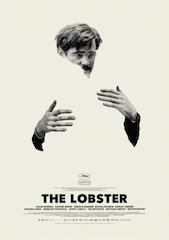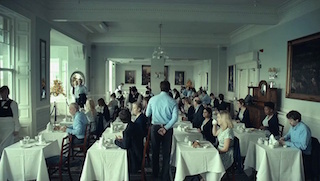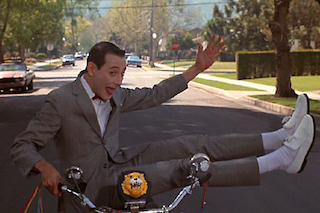 I never wanted to get married. Sure, I was interested in girls, but as I grew up, I insisted to my family I was going to be a priest so I could serve God and never get married. While I eventually came to my senses, aka puberty, and did marry a wonderful woman, it seems like the younger version of me had an inkling marriage and relationships are hard work and it wasn’t worth the effort. I would come to understand later why it matters, but at the time, I couldn’t see what made marriage all that important or even necessary.
I never wanted to get married. Sure, I was interested in girls, but as I grew up, I insisted to my family I was going to be a priest so I could serve God and never get married. While I eventually came to my senses, aka puberty, and did marry a wonderful woman, it seems like the younger version of me had an inkling marriage and relationships are hard work and it wasn’t worth the effort. I would come to understand later why it matters, but at the time, I couldn’t see what made marriage all that important or even necessary.
Greek director Yorgos Lanthimos’ black comedic romance, The Lobster, is an outlet for addressing the confusion and often misguided importance Western culture gives to companionship and the marriage relationship. Utilizing the absurdist premise of a dystopian future where singleness is illegal, the movie’s protagonist, played by Colin Farrell, is forcibly shipped off to “The Hotel” to be paired with a new wife after his wife divorces him in the opening scene. Farrell’s David must choose a preference for a partner and pick which animal he would like to be if he cannot successfully marry someone in 45 days.
If you are familiar with Lanthimos’ filmography, this territory is all too familiar. His two previous feature-length movies, the indie breakout Dogtooth and 2011’s Alps, are dark comedies that brutally satirize familial and romantic relationships. In those movies and in The Lobster, his characters deliver their lines with a monotone seriousness often betraying the bizarre and often uncomfortable situations they find themselves in. All the while Lanthimos maintains a tightly controlled environment with stationary cameras capturing contained, almost claustrophobic set pieces in subdued, dull color palettes. His movies want you to sit down, see it all, and squirm as you uncomfortably chuckle.
The greatest strength of The Lobster in comparison to his other films is a better balance of serious squirm and comedic moments. A score of great actors including Olivia Colman, Rachel Weisz, John C. Reilly, Lea Seydoux, Ben Whishaw, and the aforementioned Farrell have a lot to do with this better balance. They still utilize Lanthimos’ signature flat delivery, but their acting prowess gives even the flattest of intonations power and a measure of levity. Farrell and Reilly are particularly adept at employing a measure of silliness and Colman’s performance has a humorless cheer congruent with a woman employed as a matchmaker, hotel manager, and transmogrifier of the sad, alone, and unmatchable.
 Both the reality and prospect of being alone with no partner is hell in this world. Right living, or righteousness, is only possible with another. In the first act, The Hotel has tables for one set in front of the tables built for couples. Employees put on small plays championing the necessity of a spouse for good health and physical safety. Forms of recreation serve to reinforce the primacy of couples. These absurd elements extract the common cultural language around relationships and reframe the familiar so we can see the world of The Lobster is, in fact, our own. Even when the movie shifts from The Hotel to a collective of people sworn to singleness, their existence depends on a counter reaction to marriage and couples. What everyone is clearly trying to make sense of in this movie is the issue of identity and worth. Couples say marriage exists to give purpose. Singles in the reactionary collective say their rejection of marriage and companionship give them purpose.
Both the reality and prospect of being alone with no partner is hell in this world. Right living, or righteousness, is only possible with another. In the first act, The Hotel has tables for one set in front of the tables built for couples. Employees put on small plays championing the necessity of a spouse for good health and physical safety. Forms of recreation serve to reinforce the primacy of couples. These absurd elements extract the common cultural language around relationships and reframe the familiar so we can see the world of The Lobster is, in fact, our own. Even when the movie shifts from The Hotel to a collective of people sworn to singleness, their existence depends on a counter reaction to marriage and couples. What everyone is clearly trying to make sense of in this movie is the issue of identity and worth. Couples say marriage exists to give purpose. Singles in the reactionary collective say their rejection of marriage and companionship give them purpose.
Lanthimos’ dark comedy leads us to ask; is that why marriage matters? Why does our culture make so much of marriage and companionship? Can we really not find purpose on our own?
Biblically, the importance of marriage is grounded in God’s creative purpose. The most significant relationship God gives humans, after our relationship to him, is the marriage relationship. God says, “It is not good for man to be alone.” And later he says a man and woman leave father and mother, hold fast or cleave to one another, and become one flesh, a teaching Christ upholds when asked about marriage in the Gospel of Matthew.
While The Lobster doesn’t hold to a biblical ethic on marriage, it’s a telling story of how our culture has strayed far from companionship and marriage rooted in God. It’s a narrative about relationships post-Fall, challenging Western practices and values for a romantic partner. Severed from what anchors love and marriage, dating and companionship as our sole purpose seems farcical and can force us to do things that betray who we are. The movie ends with another Lanthimos signature, the ambiguous ending, but we’re left pondering what true companionship and marriage look like in a culture unmoored from a greater identity and purpose.


